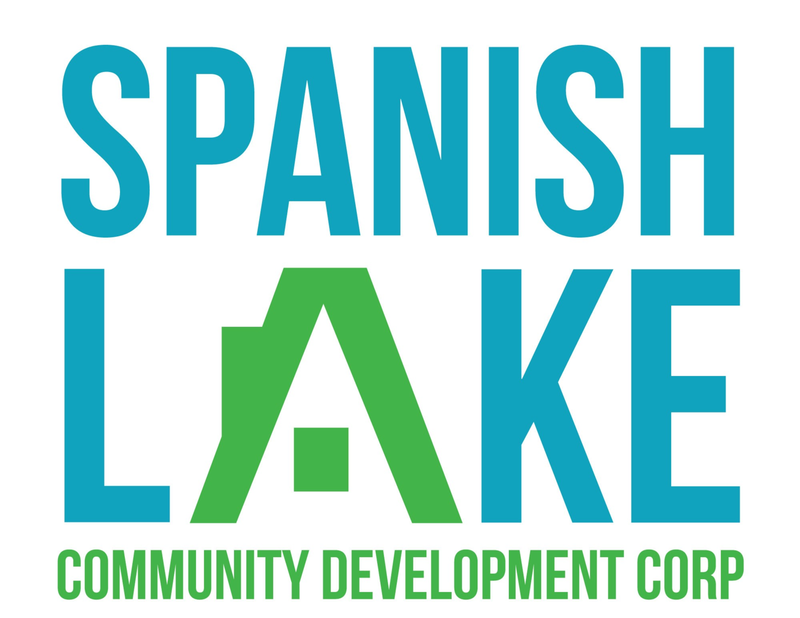THE NEED: A ST. LOUIS COUNTY LAND BANK
Why are there so many vacant and abandoned properties in your neighborhood? Why doesn’t someone just buy them and fix them up?
Two years ago, a coalition of partners sat down to talk about how to fix the growing problem of vacant and abandoned properties in some St. Louis County communities. The group realized that the County’s tax sale system could be a useful tool to help solve the problem. The current tax sale system creates barriers to buying and rehabbing abandoned housing.
The coalition suggested some state law changes to improve the County’s tax sale system to make it easier to buy and rehab vacant houses. WATCH the video above to learn more!
Two years ago, a coalition of partners sat down to talk about how to fix the growing problem of vacant and abandoned properties in some St. Louis County communities. The group realized that the County’s tax sale system could be a useful tool to help solve the problem. The current tax sale system creates barriers to buying and rehabbing abandoned housing.
The coalition suggested some state law changes to improve the County’s tax sale system to make it easier to buy and rehab vacant houses. WATCH the video above to learn more!
FREQUENTLY ASKED QUESTIONS
What is a tax sale?
A tax sale is the system that a county uses to collect unpaid property taxes.
What are the different kinds of property tax foreclosure systems?
Administrative tax sale is a system where the county sells the tax lien (aka tax debt) to a private bidder. The bidder then collects the taxes with interest, or takes title to the property itself if the owner doesn’t make their payments.
Judicial tax sale is a system where the county court supervises the tax collection. The County collects the tax debt by sending out notice to everyone with a legal interest in the tax delinquent property. If no one pays the taxes, the County sells the deed to the property (not just the tax lien) to the highest bidder.
Judicial tax sale is a system where the county court supervises the tax collection. The County collects the tax debt by sending out notice to everyone with a legal interest in the tax delinquent property. If no one pays the taxes, the County sells the deed to the property (not just the tax lien) to the highest bidder.
What do tax sales have to do with abandoned property?
Sometimes, a tax sale is the only way to find a new owner for an abandoned property. When done correctly, a tax sale can clear off any of the title problems that would make the property unmarketable (ex: deceased owner, liens, etc.).
Without clear title, it is difficult for a buyer to get financing to fix up the home or to sell if after they rehab it.
Judicial tax sale is supervised by a Judge, and it requires that everyone with a legal interest in a tax delinquent property (owners, lienholders, etc) gets legal notice of the tax sale. This notice helps ensure that all title problems are cleared off at the time of the tax sale. When owners and other interest holders get legal notice and opportunity to come forward and pay taxes before losing it, the title to the property is more likely to be clean and insurable after the tax sale takes place.
Administrative tax sale requires the private tax lien bidder to foreclose on the tax debt when the owner doesn’t pay their taxes. Usually, this means they have to hire an attorney and file a separate lawsuit to clear the title – meaning additional time and expense. Plus, if there is no bidder, the title can't be cleared at all. The property stays in limbo, and back taxes continue to accumulate, until someone buys all the tax liens.
Without clear title, it is difficult for a buyer to get financing to fix up the home or to sell if after they rehab it.
Judicial tax sale is supervised by a Judge, and it requires that everyone with a legal interest in a tax delinquent property (owners, lienholders, etc) gets legal notice of the tax sale. This notice helps ensure that all title problems are cleared off at the time of the tax sale. When owners and other interest holders get legal notice and opportunity to come forward and pay taxes before losing it, the title to the property is more likely to be clean and insurable after the tax sale takes place.
Administrative tax sale requires the private tax lien bidder to foreclose on the tax debt when the owner doesn’t pay their taxes. Usually, this means they have to hire an attorney and file a separate lawsuit to clear the title – meaning additional time and expense. Plus, if there is no bidder, the title can't be cleared at all. The property stays in limbo, and back taxes continue to accumulate, until someone buys all the tax liens.
What is clear title and why would I want it?
“Clear title” can mean several things. When we use it here, we mean that a title insurance company would be likely to issue a title insurance policy for the property. Generally, that means the title is clear of liens and other major defects.
Title insurance protects property owners and lenders against losses that can occur due to known or unknown liens, encumbrances, or defects in the title to a property. Clear title and title insurance are important because they make it easier to get loans from banks to rehab the property and to sell the property later on.
Title insurance protects property owners and lenders against losses that can occur due to known or unknown liens, encumbrances, or defects in the title to a property. Clear title and title insurance are important because they make it easier to get loans from banks to rehab the property and to sell the property later on.
What is a land bank?
A land bank is a government agency that takes title to abandoned properties that don’t sell at the tax sale. Land banks work with local communities to find new productive uses for abandoned properties.
How do land banks get property?
When properties don’t sell at a tax sale (aka, no one bids on them at the auction), the title is automatically transferred to the land bank.
Most land banks also accept donations of vacant, abandoned properties.
Most land banks also accept donations of vacant, abandoned properties.
Do land banks use eminent domain to get property?
No. Land banks are specifically prohibited from using eminent domain.
What do land banks do with their property?
It is the land bank’s job to maintain the properties and get them back to productive use. Usually, that means they sell the property to buyers who are willing to rehab it. They can also provide supportive services to buyers and monitor the rehabs to make sure everything is going according to plan. They also work with nonprofits and municipalities to find best uses for the properties the land bank owns.
Remember, most property ends up in the land bank because no one bought it at the tax sale, so most of the properties owned by land banks are in bad condition. That means the land bank has to get creative and work with all kinds of partners to find a new use for the property.
Remember, most property ends up in the land bank because no one bought it at the tax sale, so most of the properties owned by land banks are in bad condition. That means the land bank has to get creative and work with all kinds of partners to find a new use for the property.
Can I buy property from the land bank?
Yes, anyone can make an offer to buy property from a land bank!
Will I have to pay back taxes?
No, one of the best features of a land bank is that any delinquent taxes or liens on the properties are cleared when the land bank takes title. Typically, a land bank sells property for its fair market value.
Is a land bank the same as a community land trust (CLTs)?
No! Land banks are governmental entities, whereas CLTs are private nonprofits. Land banks have special power to acquire property and clear title. CLTs usually hold ownership of the land, but they sell the house on top of the land. Then, when the owner sells the house, a percentage comes back to the CLT to reduce the purchase price for the next buyer.
Land banks are common in weak markets. CLTs are more useful at preserving housing affordability in appreciating markets.
They can work together though! If a CLT wants to buy property from the land bank it can apply and submit its proposal just like anyone else!
Land banks are common in weak markets. CLTs are more useful at preserving housing affordability in appreciating markets.
They can work together though! If a CLT wants to buy property from the land bank it can apply and submit its proposal just like anyone else!
Does my city have a land bank?
St. Louis City, Kansas City, St. Joseph, and Blue Springs are the only cities in Missouri that have land banks. St. Louis City’s land bank is called the LRA.
No other city or county in Missouri has a land bank. A new law has to be passed at the state level to allow other cities or counties to establish land banks.
No other city or county in Missouri has a land bank. A new law has to be passed at the state level to allow other cities or counties to establish land banks.
How will new Missouri land banks be different from the St. Louis City land bank (LRA) and the Land Bank of Kansas City?
New land banks created under the proposed legislation have important differences from the St. Louis City and Kansas City land banks.
St. Louis’s LRA and the Land Bank of Kansas City take title to every tax delinquent property that doesn’t sell at tax sale. This means St. Louis City and Kansas City have thousands and thousands of abandoned properties, making management difficult.
New land banks will be able to choose which properties can go to the land bank and control the size of their inventories. New land banks can work with their collector to assemble a list of abandoned properties that would be eligible for land banking. By being selective and strategic, new land banks will be able to focus on the properties that really matter, instead of being bogged down by an overwhelming inventory.
Plus, the new land banks will have many more sources of funding than the St. Louis and Kansas City land banks. Proper funding is key to creating a successful land bank. With more funding sources, new land banks will be better able to get their abandoned properties back to productive use.
St. Louis’s LRA and the Land Bank of Kansas City take title to every tax delinquent property that doesn’t sell at tax sale. This means St. Louis City and Kansas City have thousands and thousands of abandoned properties, making management difficult.
New land banks will be able to choose which properties can go to the land bank and control the size of their inventories. New land banks can work with their collector to assemble a list of abandoned properties that would be eligible for land banking. By being selective and strategic, new land banks will be able to focus on the properties that really matter, instead of being bogged down by an overwhelming inventory.
Plus, the new land banks will have many more sources of funding than the St. Louis and Kansas City land banks. Proper funding is key to creating a successful land bank. With more funding sources, new land banks will be better able to get their abandoned properties back to productive use.
Can municipalities in St. Louis County use land banking?
Yes. Municipalities in St. Louis County cannot create their own land banks, but they can participate in the St. Louis County’s countywide land bank. Municipal leaders can work with the County collector to identify problem properties in their jurisdiction that would be eligible for land banking. These properties would go through the judicial tax sale process to clear title and, if they don’t sell at auction, would enter the County’s land bank.
As written, the new legislation requires that one board member of the St. Louis County Land Bank be co-appointed by the County executive and the Municipal League of Metro St. Louis.
As written, the new legislation requires that one board member of the St. Louis County Land Bank be co-appointed by the County executive and the Municipal League of Metro St. Louis.
How are land banks funded?
Funding for land banks is important. Different land banks are funded in different ways.
There are five main funding sources for Missouri land banks in the proposed legislation:
There are five main funding sources for Missouri land banks in the proposed legislation:
- Sale of property – The land bank keeps the money from the sale of its property.
- Tax recapture – Once a land bank property is sold to a private owner and that owner starts paying the property taxes, a percentage of that new tax money goes to the land bank for the first three years after the sale.
- Late fees – In St. Louis County only, the Collector may add a late fee of up to 5% for all delinquent taxes to fund its land bank.
- Recording fee – An extra $1 recording fee charged by every Recorder of Deeds in MO will go to “Missouri Land Bank Fund” to fund land banking statewide.
- Bidder fee – A non-reimbursable $200 bidder fee is to be paid by any successful tax sale bidder/buyer to fund land banks.






